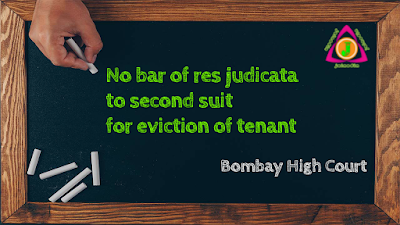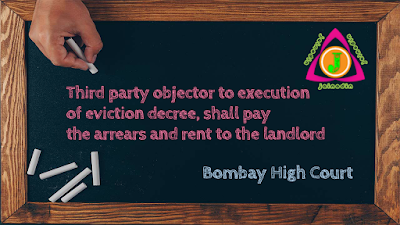Such equitable protection does not mean that the disputes relating to those aspects between the landlord and the tenant is not arbitrable and that only a Court is empowered to waive the forfeiture or not in the circumstance stated in the provision. In our view, when the disputes arise between the landlord and tenant with regard to determination of lease under the TP Act, the landlord to secure possession of the leased property in a normal circumstance is required to institute a suit in the Court which has jurisdiction. However, if the parties in the contract of lease or in such other manner have agreed upon the alternate mode of dispute resolution through arbitration the landlord would be entitled to invoke the arbitration clause and make a claim before the learned Arbitrator. Even in such proceedings, if the circumstances as contained in Section 114 and 114A of TP Act arise, it could be brought up before the learned Arbitrator who would take note of the same and act in accordance with the law qua passing the award. In other words, if in the arbitration proceedings the landlord has sought for an award of ejectment on the ground that the lease has been forfeited since the tenant has failed to pay the rent and breached the express condition for payment of rent or such other breach and in such proceedings the tenant pays or tenders the rent to the lessor or remedies such other breach, it would be open for the Arbitrator to take note of Section 114, 114A of TP Act and pass appropriate award in the nature as a Court would have considered that aspect while exercising the discretion.[Para No.16]
On the other hand, the disputes arising under the Rent Acts will have to be looked at from a different view point and therefore not arbitrable in those cases. This is for the reason that notwithstanding the terms and conditions entered into between the landlord and tenant to regulate the tenancy, if the eviction or tenancy is governed by a special statute, namely, the Rent Act the premises being amenable to the provisions of the Act would also provide statutory protection against eviction and the courts specified in the Act alone will be conferred jurisdiction to order eviction or to resolve such other disputes. In such proceedings under special statutes the issue to be considered by the jurisdictional court is not merely the terms and conditions entered into between the landlord and tenant but also other aspects such as the bonafide requirement, comparative hardship etc. even if the case for eviction is made out. In such circumstance, the Court having jurisdiction alone can advert into all these aspects as a statutory requirement and, therefore, such cases are not arbitrable. As indicated above, the same is not the position in matters relating to the lease/tenancy which are not governed under the special statutes but under the TP Act.[Para No.17]







